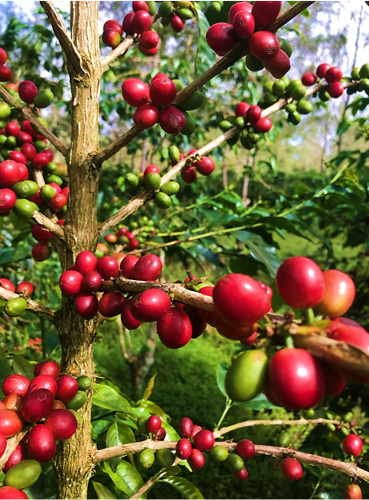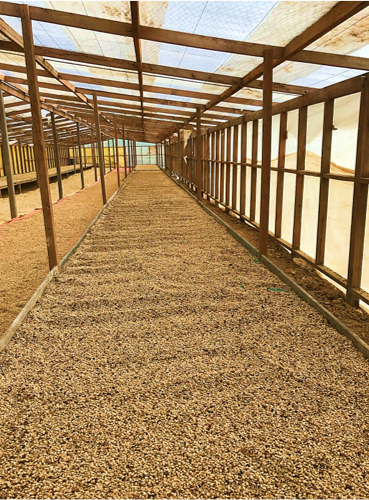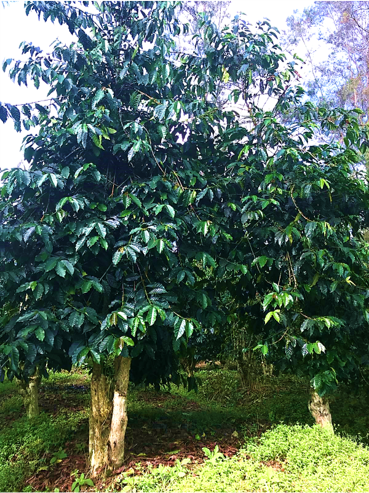Farm Introduction
Numenz village is located in the Jiwaka province. Jiwaka is situated in an incredibly fertile valley formed by the Wahgi River.
For the residents of Numenz, coffee is a primary resource. Kenny Coffee comes from the village of Numenz which has a population of approximately.
The villagers collectively produce coffee and adhere
to “Good Agriculture Practices(GAP)”.
Amidst beautiful landscapes, coffee grows steadily
in the warm and humid climate, nurtured under the
shade, allowing cherries to mature slowly and develop complex flavors.
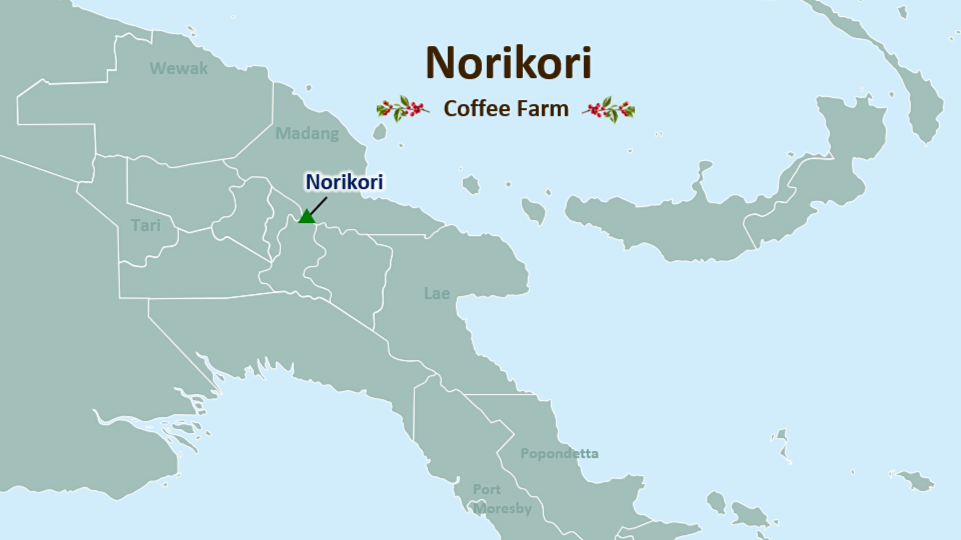
Village
Numenz (Jiwaka Province)
Altitude
1500m – 1600m
※The farm starts from higher ground near the Wahgi River
Temperature Range
In both regions, the temperature typically ranges between 15°C and 26°C.
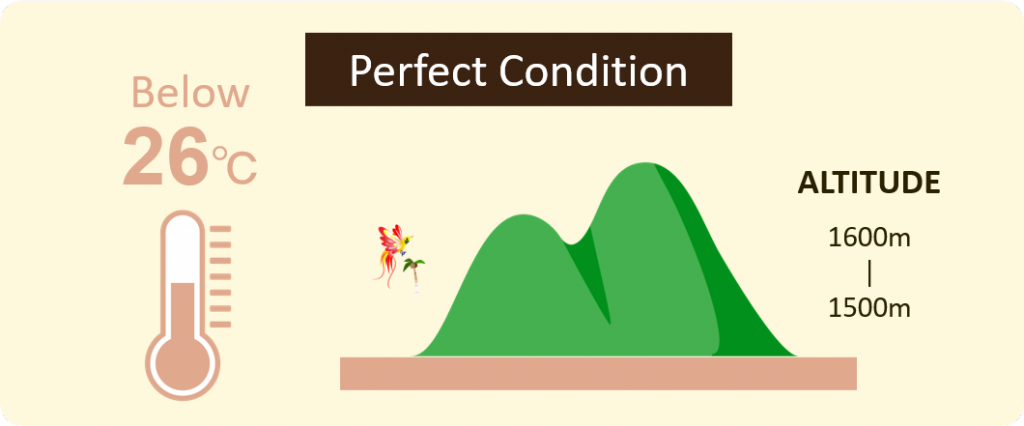
Rainfall
Both Norikori and Jiwaka experience consistent rainfall throughout the year, with the rainy season lasting from November to April. This rainfall is crucial for coffee plant growth and development. The dry season from May to September is ideal for harvesting.
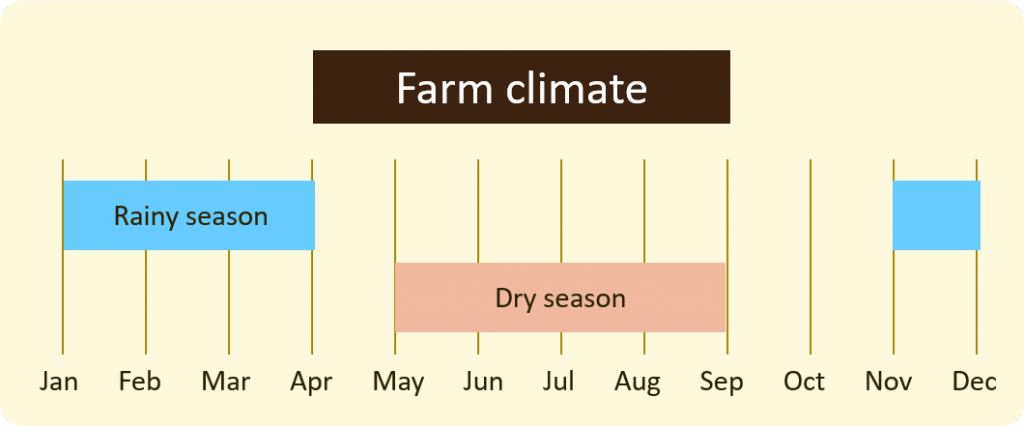
Harvest Season
Numenz experiences its coffee harvest season from April to August.
Harvest Volume
The hardworking farmers yield an impressive 80 to 100 tons of coffee annually.

About the new grading standards for Papua New Guinea coffee
process
The diligent Numenz farmers follow a meticulous process.
- Day 1Harvest
They pluck ripe coffee cherries.
And promptly remove the pulp on the same day. - Day 2Fermentation and Drying
The cherries undergo fermentation and drying for approximately 26 to 36 hours.
- Day 5Washing
After the initial fermentation, the cherries are washed.
- Day 6Final Drying
The beans are then dried for 3 to 5 days on African beds.
- Day 11Drying end
Good Agricultural Practices (GAP)
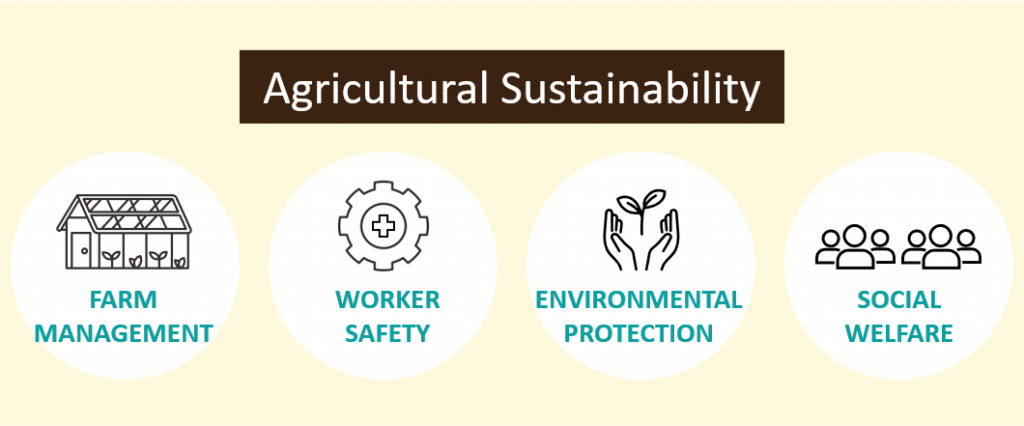
Good Agricultural Practices (GAP) is a set of management activities that ensure agricultural sustainability and has Four components.
Four Initiatives for the Sustainability of Agriculture
・Ensuring Environmental Protection
・Securing Worker Safety
・Trustworthy Farm Management
・Workers, Human Rights and Welfare
※GAP standards include reducing water usage, using appropriate fertilizers, and improving productivity while considering social, environmental, and economic criteria.
Photo
